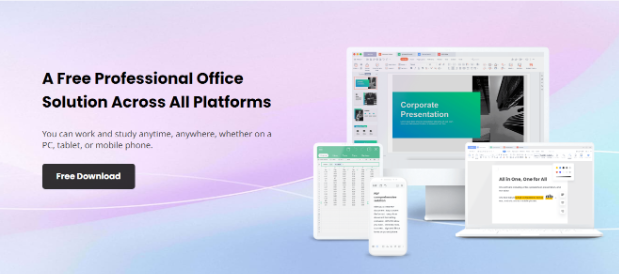Evaluating Credentials, Building Careers: A Resource for Immigrants

More individuals than ever are relocating across borders and nations due to growing globalization. As a result, borders are frequently crossed by immigrants to better their own lives and seize opportunities. Yet many aspirants frequently need help with numerous employment-related obstacles that prohibit them from working in their fields of expertise, where credential evaluation for career comes into the picture.
The biggest obstacles were the inability to have credentials (such as school and professional training) recognized and transferred, the lack of proficiency in the English language, the ambiguity around job market norms, and the cultural aspects of networking and the application process.
The implementation of training programs in areas similar to retraining for particular professions, as well as support in navigating the job search and application process, streamlining the credential evaluation process, and working directly with employers to establish programs tailored to their particular labor needs, were the most effective recommendations, corresponding to these challenges.
Table of Contents
Why is Credential Evaluation Important?
Importance of Credential Evaluation
A credential evaluation is a process of evaluating your academic credentials by professionals to determine whether they are equivalent to those from other countries such as U.S. credential evaluation service. It applies to anyone looking for jobs in these nations and students applying for study abroad programs. Professionals are required to submit evaluated degrees upon registering.
Benefits of credential evaluation:
1) Acceptance and Recognition: Credential review enables holders of degrees or transcripts to receive recognition on par with the highest educational level in the U.S. Also, it enables them to apply for suitable positions. Similarly, international students can apply for admission to American schools and universities after reviewing their home country’s educational qualifications.
2) Improved Learning Compatibility: Having your credentials reviewed by a professional organization guarantees that your credentials meet the requirements required by a foreign university. The credential review also ensures that the students are well-spent compared to their peers because they come from different academic contexts and systems. It offers equal opportunities and intellectually strong individuals, lowering the likelihood of pupils struggling on campus.
3) Save money and time: If there is no review, applicants may be forced to repeat a level of school that they have already finished in their home countries. Both money and time may be well-spent. The verification also creates new opportunities for professionals to obtain licenses and permissions to keep their business uninterrupted.
4) Ease of Mind: The correct agency’s evaluation of qualifications lessens ambiguity. Knowing that their certification is equal to those obtained in the U.S. gives the certificate bearer some peace of mind.
How to evaluate the credential evaluation process?
Overview of the credential evaluation process
The credential evaluation process is a way for institutions to verify the authenticity and validity of an individual’s educational background. The process typically involves requesting official transcripts and diplomas from the individual, then verifying their accuracy with the educational institution. The information is then compared to the standards of the evaluation institution, and a report is created detailing the individual’s academic qualifications. Depending on the institution, additional documents such as letters of recommendation and resumes may be required for the evaluation process. This helps to ensure that the individual is qualified for the position they are applying for.
Different types of credential evaluation and their uses
- Educational Credential Evaluation: A document that assesses foreign educational credentials, such as degrees and diplomas, and compares them to the standards of education in the United States. This evaluation determines whether an individual meets the educational requirements to pursue higher education, gain employment, or gain legal status in the U.S.
- Professional Credential Evaluation: A document that assesses professional credentials, such as licenses, certifications, and work experience, and compares them to the standards of the profession in the United States. This evaluation determines whether an individual meets the requirements to practice a profession in the U.S.
- Immigration Credential Evaluation: A document that assesses foreign credentials for immigration-related purposes, such as obtaining an employment-based visa or permanent residency. This evaluation determines whether an individual meets the educational or professional requirements for immigration purposes.
- Language Credential Evaluation: A document that assesses foreign language credentials, such as language certificates, and compares them to the language proficiency standards in the United States. This evaluation determines whether an individual meets the language proficiency requirements to pursue higher education, gain employment, or gain legal status in the U.S.
Common challenges and solutions faced by immigrants for credential evaluation
- Language Barriers: Immigrants may need help understanding the terminology and language used in credential evaluations. The solution for this barrier includes providing translation services and offering extra support to aid comprehension.
- Cultural Differences: Different countries have different educational systems and grading standards, making it challenging to assess credentials accurately. Solutions include consulting educational institutions to gain insight into the local education system and grading standards.
- Documentation: Immigration applications often require proof of educational credentials, which many immigrants may not have access to. This challenge can be figured by working with immigrants to help obtain the necessary documents and coordinating with foreign educational institutions to support verifications.
- Recognition of Credentials: Many countries may need to recognize specific foreign credentials. Thus by reaching out to organizations specializing in credential evaluation to determine the credentials’ recognition level this challenge can be resolved..
Conclusion
Evaluating credentials and building a career with the help of educational records and evaluation service is a great way to take control of one’s future. By researching potential employers and positions, looking into different courses and programs to acquire the necessary skills, and with assistance for background verification and tedious processes like credential evaluation, it becomes easier for an individual to land into their chosen field. Resources like ERES do the hard work and guide you through evaluating one’s credentials and building a successful career.



